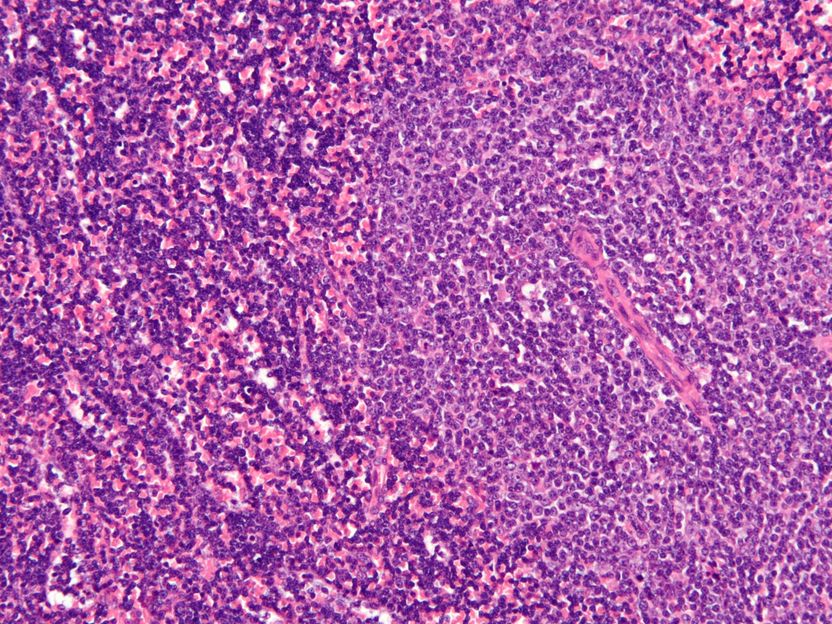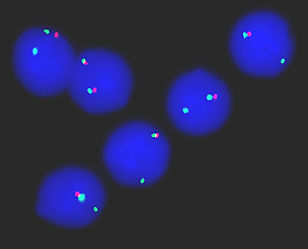Discovery of a gene that causes chronic lymphocytic leukemia
CSIC researchers lead a study that shows that more than 82% of patients with this pathology have high levels of the RRAS2 gene.
Advertisement
CSIC researchers, with the support of the Spanish Association Against cancer, lead a study that has identified a gene that, without the need for mutations, causes chronic lymphocytic leukemia, the most common in people over sixty years of age. The finding, published in Molecular Cancer, shows that more than 82% of patients with this pathology express high levels of the RRAS2 gene and that higher amounts of the gene are associated with more aggressive leukemias.

Micrograph of a lymph node affected by chronic lymphocytic leukemia.
Nephron-Wikipedia
"This fact, together with the identification of a marker in the gene, a polymorphism, allows us to suggest that most chronic lymphocytic leukemias in humans are caused by the over-expression of RRAS2," explains the director of the study, Balbino Alarcón, from the Severo Ochoa Molecular Biology Center (CSIC-UAM).
Thanks to this discovery, the RRAS2 gene is emerging as an unequivocal marker in the detection of chronic lymphocytic leukemia and opens the door to the exploration of new treatments. "We believe that the protein encoded by this gene could be an important target for the generation of new drugs that are effective in the treatment of this disease," says Alarcón.
An oncogene without mutations
Cancers are caused by the accumulation of damage to genes in the body's cells. The search for specific genes responsible for different types of cancer, the oncogenes, is carried out by identifying mutations. These cause changes in the amino acid sequence of the proteins encoded by the oncogenes. However, in the study led by the CSIC it has been discovered that RRAS2 causes chronic lymphocytic leukemia without mutations in its amino acid sequence.
The relevance of this data lies in the ways of detection, since the marker of the possible presence of cancer is not based on the mutation, but on the amount of the gene itself in the organism. "We have observed that above-normal expression of the RRAS2 gene without mutations in mice is sufficient to cause the onset of chronic lymphocytic leukemia in all animals," concludes Alarcón.
Note: This article has been translated using a computer system without human intervention. LUMITOS offers these automatic translations to present a wider range of current news. Since this article has been translated with automatic translation, it is possible that it contains errors in vocabulary, syntax or grammar. The original article in Spanish can be found here.
Original publication
Hortal AM, Oeste CL, Cifuentes C, Alcoceba M, Fernández-Pisonero I, Clavaín L, Tercero R, Mendoza P, Domínguez V, García-Flores M, Pintado B, Abia D, García-Macías C, Navarro-Bailón A, Bustelo XR, González M and Alarcón B.; "Overexpression of wild type RRAS2, without oncogenic mutations, drives chronic lymphocytic leukemia."; Molecular Cancer.
























































